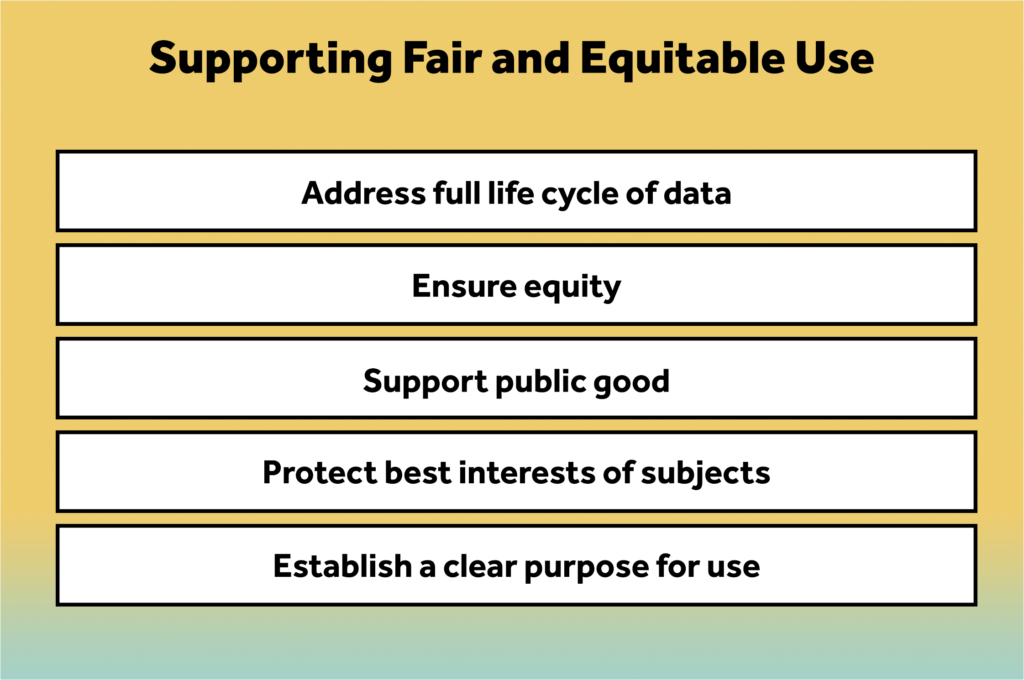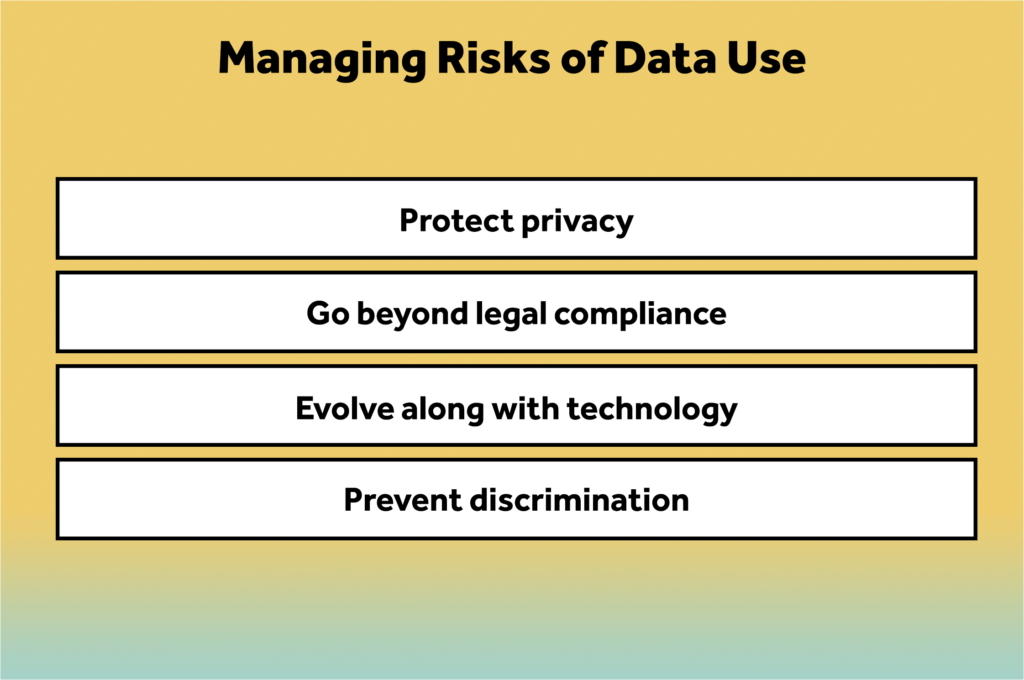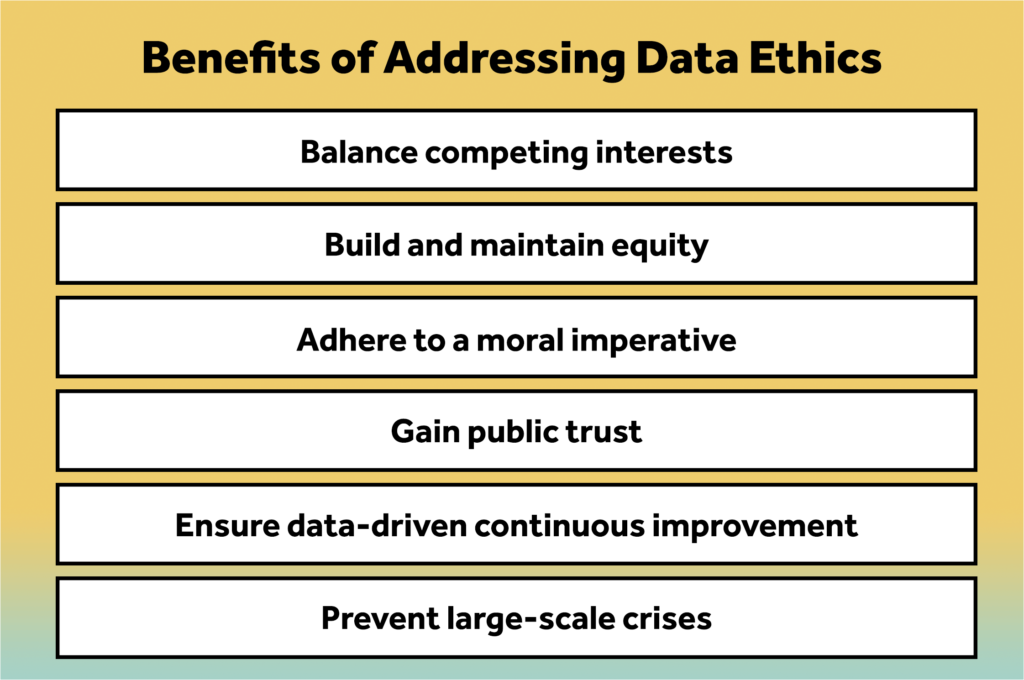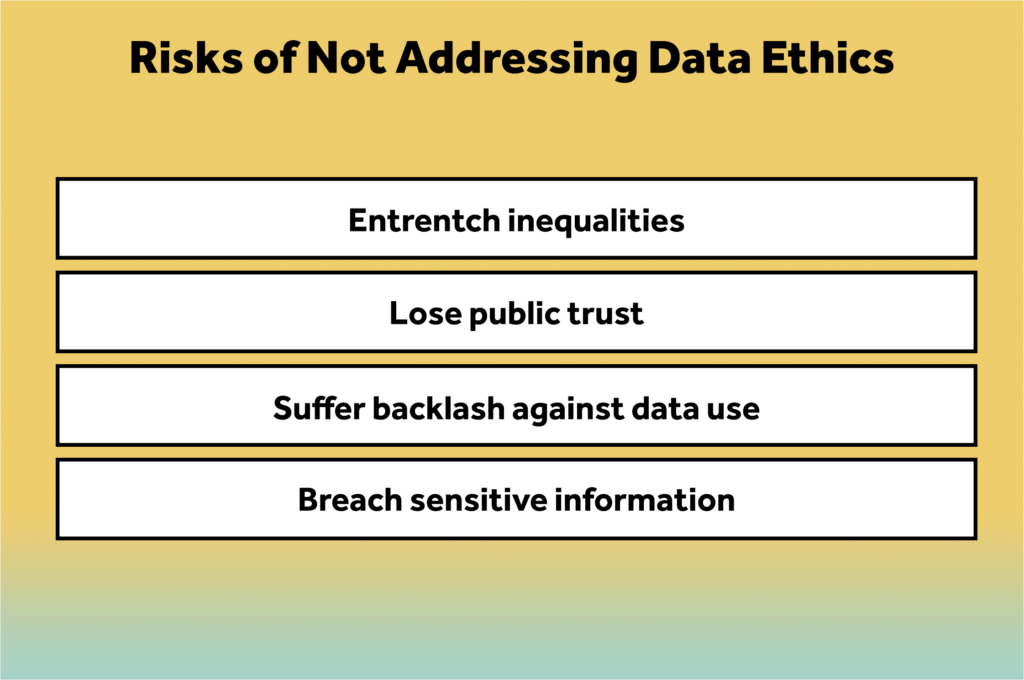AI Policy & Governance, Equity in Civic Technology, Privacy & Data
Report – Data Ethics in Education and the Social Sector: What Does It Mean and Why Does it Matter?
Executive Summary
Data and technology are playing an increased role in educating and supporting students and their families. This has become even more pronounced as a result of the global pandemic, during which schools are relying on technology to support distance learning and may collect new data about students’ health to provide safe in-person instruction. With this growing reliance on data and technology comes an increased responsibility to ensure not only that data is kept private and secure, but also that new technologies are used only to benefit students, not limit their educational opportunities. To achieve this goal, policymakers and practitioners need to look beyond privacy and security to how data and technology might be misused or have unintended consequences. Responsible planning and clear guardrails can help ensure technology is used to support students and their families.
A data ethics approach can support the education sector in shaping policies and practices that promote the responsible use of data and technology. Simply put, data ethics is the application of ethics concepts and resources to the specific challenges of responsible data use. However, operationalizing ethical data practices requires further understanding and scoping around two key areas:
- Supporting fair and equitable use of data and technology to maximize the potential to improve the public good and lives of individuals; and
- Managing risks that lead to negative impacts on individuals, especially vulnerable populations.
As highlighted in Figure 1, important topics within both of these areas should guide the education sector’s use of data and technology.


Figure 1. Data ethics definitions and related topics
Additionally, Figure 2 provides an overview of the range of reasons why it is important to address data ethics, both to achieve proactive benefits and avoid potential risks:


Figure 2. Reasons to address data ethics
Finally, there are several key issues that must be addressed to ensure that data is used responsibly and ethically:
- Governance and oversight: Data governance is the management of data and technology, including people, processes, and structures that oversee their use. Governance is fundamental to supporting ethical data use and should address issues like data quality; data retention, deletion, and minimization; promoting user access and data ownership; and outlining and enforcing appropriate uses of data and technology. These structures are important in their own right, and also lay the foundation for addressing other important data ethics issues.
- Stakeholder engagement: Organizations should engage stakeholders like students and families, teachers, and administrators throughout the process of adopting and using data and technology. Doing so has multiple benefits, most notably increased buy-in and trust in the use of data as well as the organization more broadly. It can also result in the early detection of concerns, and allow for more inclusive and robust solutions for those concerns.
- Equity and bias: The use of data and technology has the potential to improve equity and limit biases, but only if the collection, analysis, and use of data is designed intentionally to meet these goals. There are many examples of how the use of data and technology reinforces the biases and inequities present in society, particularly in research uses and artificial intelligence applications.
- Transparency: Transparency throughout the data life cycle enables individual providers of the data to be informed participants, helping build trust in the process.
- Capacity-building: Because data and technology are rapidly evolving, it is a challenge for organizations, especially under-resourced organizations like schools, to have the capacity to enact and follow ethical data practices and policies. Organizations can build capacity by participating in trainings, creating guidance resources, and having dedicated staff to support team members in this work.
- Secondary data use: Once data has been collected, it is sometimes reused for additional purposes beyond the original intended use, potentially diverging from the scope of what the data subject previously consented to or was notified of. This can violate the trust and consent of the data subject, since it does not meet their expectation of how the data was meant to be used.
- Privacy and security: Privacy is the idea that people should be able to control their own information, and that the entities that are authorized to collect and use that information do so in ways that respect an individual’s autonomy. Security is the practice of preventing unauthorized access to information and the systems that hold it. In education, data privacy is governed by laws at both the state and federal levels, although these laws often do not fully cover associated best practices.
- Open data access and research: Some data sets may be aggregated or stripped of identifiable information for purposes of sharing with researchers or the broader public, which can raise issues of privacy and security, risk of re-identification, secondary data use, transparency, and consent.
- Consent: Consent can play a role in supporting responsible data use, even in instances where it is not legally required, as it can assist with ensuring stakeholder buy-in and transparency. However, ethical data use cannot rely on users’ consent alone. There are important challenges to informed consent, including whether the user really reads and understands the ways their data may be used, and whether the user feels they have a meaningful, non-coercive choice. Therefore, consent alone is not sufficient to protect individuals and should be complemented with other practices.
Although the field of data ethics is still evolving in education, responsible data use is of critical importance for all organizations that seek to utilize data and technology to improve outcomes for students and their families. A particular use of data or technology might be legal, private, and secure, but not in the interest of students and families. Therefore, data ethics is an important framework to support beneficial data and technology uses while minimizing potential harms. This report seeks to provide a working definition of data ethics, explain why it matters for educators and public officials, and explore key topics and practices that need to be addressed to operationalize data ethics principles.


